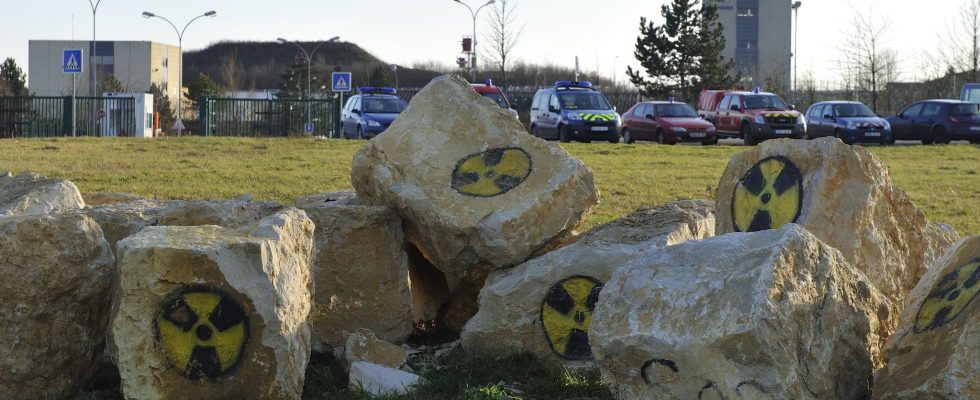It is a decision described as “historic” by climate defenders, even though it seems to be unfavorable to them. Asked about the nuclear waste burial project in Lorraine, the Constitutional Council ruled this Friday, October 27, that the project is consistent with the Constitution. In its decision, however, the largest French court recognizes, for the first time, criteria for threats to the rights of future generations.
The Sages took into account the intertemporal dimension of environmental protection and called on the legislator to take “future generations” into account. “Legislators must ensure that choices designed to meet the needs of the present do not compromise the ability of future generations and other peoples to meet their own needs,” they note in their decision. Associations will therefore be able to rely on it in future proceedings, but will have to take care to prove that a project causes “serious and lasting” damage to the environment.
A notion that has been emerging for several decades
The first time that this notion of “right of future generations” appeared on the international scene was during the Earth Summit in Rio in 1992. The definition given to sustainable development is that of a “mode of development which meets the needs of the present without compromising the ability of future generations to meet their own needs.” At the United Nations, in the 1980s and 1990s, there was talk of creating a defender of the rights of future generations. But the idea was never implemented. In guidance note published in July 2023the UN brought the idea up to date and proposed “the designation of an envoy to give a voice to future generations on a global scale”.
In 1993, Antonio Oposa, a Filipino lawyer and activist, is the first to bring appeals on behalf of future generations. He thus obtained a halt to massive deforestation in the Philippines in order to preserve virgin forests for generations to come. Since then, several other trials have opened and carry the same message: that of preserving the rights of generations “not yet born”. The same year, in 1993, France created an independent authority under the leadership of François Mitterrand: the Council for the Rights of Future Generationsdissolved two years later.
The needs of future generations enshrined in the Constitution
The environmental charter, integrated in 2005 into the constitutionality block of French law, included in its preamble that “choices designed to meet the needs of the present must not compromise the ability of future generations and other peoples to meet their own needs.” The Paris Agreement signed in 2015 also emphasized this need and required them to “respect, promote and take into consideration their respective obligations regarding […] equity between generations.” “The same process is at work in our national law: a bioethics law, for example, is a law which aims to protect the future human condition”, explains Laura Martin-Meyer , production manager at INRAE, in SESAME magazine.
This decision reinforces the effects of the environmental charter and reminds legislators of its existence. When it “is going to adopt a law likely to cause serious and lasting damage to the environment, it must ensure that the choices it makes do not compromise the needs of future generations and other peoples, analyzes the lawyer for opponents of the Cigéo landfill center, Stéphane-Laurent Texier, near Reporterre. This is a decision that sets very important milestones for environmental protection.”
For many jurists, however, the concept still remains very vague. What is the legal qualification of future generations? “Beyond the institutional, political and activist aspects, speaking in the place of humans not yet born leads on a more legal and jurisdictional level to questioning the place of public actors and holders of the action”, noted in 2022 l Institute for Law and Justice Research. The research center launched a call for projects on the notion: “the right(s) of future generations”. Proof of this is that the implications of this concept have continued to be discussed, and the expression redefined.
